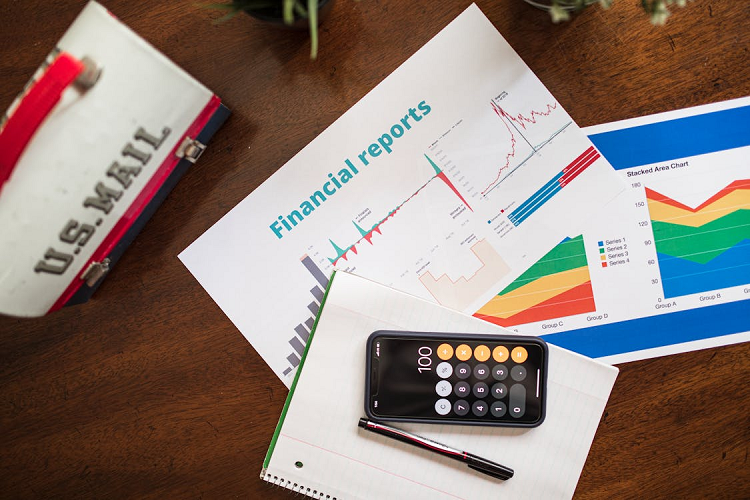A recession is a period of economic decline marked by a decrease in a country’s Gross Domestic Product (GDP) for two consecutive quarters or six months. GDP is a key measure of a nation’s economic performance, representing the total value of all goods and services produced within the country.
When GDP declines for two quarters in a row, it signals that the economy is contracting. This usually leads to negative effects like job losses, reduced consumer spending, and less investment by businesses. In short, it’s a sign that the economy is slowing down and struggling.
To be prepared for a recession, understanding the key factors that contribute to it is crucial. Let’s talk about them here.
Table of Contents
Excessive Debt
When individuals, businesses, or governments accumulate too much debt, they can struggle to repay, especially when the economy slows down. Interest payments pile up, and borrowers may eventually default, leading to a ripple effect across the economy. When debt levels become unsustainable, the financial system becomes fragile, and the risk of widespread economic instability increases.
For example, during the 2008 global financial crisis, excessive borrowing in the housing market led to a collapse in real estate values. Homeowners who had taken out large mortgages couldn’t afford to keep up with their payments, and the default rates skyrocketed. This created a domino effect that ultimately caused banks to fail, leading to one of the worst recessions in modern history.
Managing debt responsibly is key to avoiding financial strain. Focus on building an emergency fund, paying off high-interest loans first, and only borrowing when necessary. In urgent situations, instant payday loans online guaranteed approval may provide temporary relief, but only if you can repay them promptly to avoid further financial stress.
High Inflation
Inflation refers to the rise in the general price level of an economy’s goods and services over time. High inflation reduces consumers’ purchasing power, as they need to spend more to easily buy the same items they used to afford. As prices rise, demand can drop, causing businesses to reduce production. This leads to layoffs, further reducing consumer spending and slowing economic growth. If inflation gets out of control, it can lead to a recession.
A good example of this is the inflation crisis of the 1970s, often referred to as “stagflation.” During this time, the United States faced rising inflation coupled with stagnant economic growth. Energy prices skyrocketed due to the oil embargo, which caused the cost of nearly all goods to rise. People couldn’t afford the basics, which led to a sharp decline in consumer spending and an eventual economic slowdown.
One way to protect yourself during periods of high inflation is to diversify your investments into assets like real estate or commodities, which tend to appreciate inflation. Additionally, keeping a close eye on personal spending and maintaining a strict budget can help shield you from the worst effects of rising prices.
Rising Unemployment
When businesses slow down, they often cut jobs to save money. As more people lose their jobs, consumer spending drops since households no longer have disposable income. This decrease in demand leads to even further cuts in production and layoffs, creating a vicious cycle that deepens the recession.
An example of how rising unemployment can lead to a recession is the economic downturn during the COVID-19 pandemic. Many businesses, especially in sectors like hospitality, travel, and retail, were forced to shut down or operate at reduced capacity, leading to widespread job losses. The sharp rise in unemployment reduced overall demand for goods and services, causing a severe economic contraction.
To overcome the challenges of rising unemployment, individuals must continuously improve their skills and stay adaptable in a changing job market. Governments can help by providing retraining programs, supporting struggling industries, and offering unemployment benefits to those affected. Staying proactive in the face of employment uncertainty can lessen the impact of an economic downturn.
Declining Consumer Confidence
Consumer confidence reflects people’s optimism about the economy and their financial future. When consumer confidence is high, people tend to spend more, driving economic growth. However, when confidence drops, people become more cautious with their money, saving instead of spending. This leads to a decline in demand, which can slow down the economy and eventually trigger a recession.
In times of low consumer confidence, businesses can encourage spending by offering incentives, while governments may step in with stimulus programs to boost economic activity. For individuals, maintaining a balanced approach to saving and spending and staying informed about the economic climate can provide financial security during uncertain times.
Global Economic Shocks
Global economic shocks refer to sudden events that impact the worldwide economy, such as natural disasters, wars, pandemics, or trade disruptions. These events can disrupt supply chains, reduce international trade, and create uncertainty in global markets. When these shocks hit, they can slow down the affected countries and economies worldwide, leading to a recession.
The COVID-19 pandemic is also one of the most recent examples of a global economic shock. With countries imposing lockdowns and travel restrictions, international trade and tourism ground to a halt. Factories closed, and global supply chains were severely disrupted. As businesses struggled to stay afloat, many countries experienced sharp recessions in 2020.
Businesses and individuals should stay flexible and prepared to weather global economic shocks. Diversifying supply chains, building financial reserves, and being aware of international economic trends are essential. Governments, too, can mitigate these effects by coordinating international responses and providing timely financial support.
Final Thoughts
Understanding these key factors is crucial because it allows individuals, businesses, and governments to prepare for potential economic downturns. Knowledge is the first defense against economic uncertainty, and knowing these factors helps you stay ahead in uncertain times.

